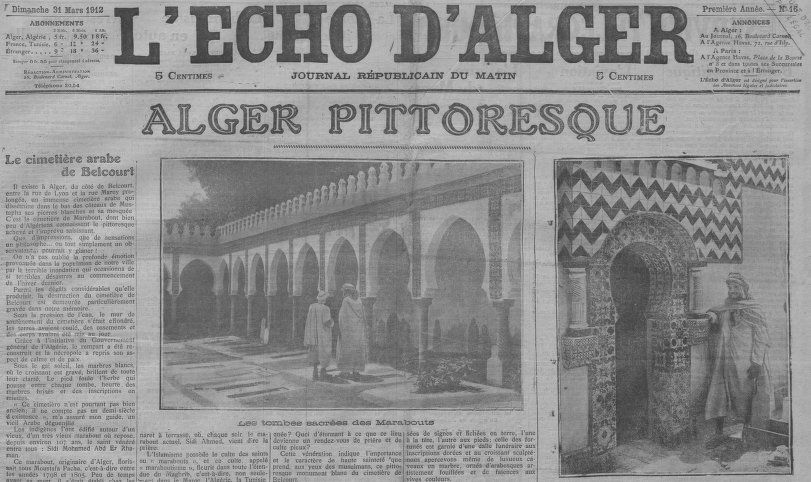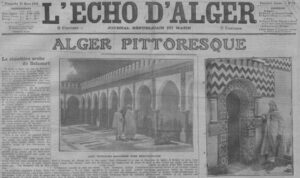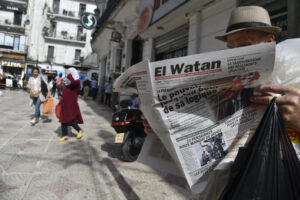The media plays a crucial role in shaping public opinion and political discourse, and this is especially true in Algeria. As a nation with a rich and complex history, the Algerian media landscape is diverse and multifaceted, with a variety of newspapers representing a range of viewpoints and perspectives. In this blog post, we will explore the role of Algerian newspapers in shaping public discourse and informing citizens, and how they have played a significant role in the country’s political and social landscape. Whether through in-depth investigative journalism, analysis of current events, or coverage of cultural and social issues, Algerian newspapers have long been a vital source of information and discussion for the people of Algeria. So, let’s take a deeper look at the role of Algerian newspapers in the political and social landscape of the nation.
The history of Algerian newspapers
Algerian newspapers have played a significant role in shaping the political and social landscape of the country. From the early days of the fight for independence to the present, the media has played a crucial role in informing citizens and shaping public discourse. In this article, we will take a look at the history of Algerian newspapers and how they have evolved over the years.
The history of Algerian newspapers can be traced back to the early days of the fight for independence from France. During this time, newspapers served as a platform for political leaders and activists to voice their views and rally support for the cause. As the independence movement gained momentum, newspapers played a vital role in spreading information and galvanizing the population.
After independence was achieved in 1962, the media landscape in Algeria underwent significant changes. The government established strict controls over the media, resulting in a largely state-controlled press. Despite these restrictions, Algerian newspapers continued to serve as a platform for voicing dissenting views and addressing social and political issues. In recent years, with the easing of some of these controls and the rise of digital media, Algerian newspapers have seen a resurgence in diversity and freedom of expression.
Major Algerian newspapers and their editorial stance
Algerian newspapers have long played a significant role in shaping public discourse and informing citizens about political and social issues. Many of the major newspapers in Algeria are aligned with specific political parties or viewpoints, which can influence the content and tone of their reporting.
El Moudjahid, for example, is the official newspaper of the ruling National Liberation Front (FLN) party, and is known for its pro-government stance. On the other hand, Liberté has a reputation for being more critical of the government and has often taken an opposition stance in its reporting.
Other major Algerian newspapers, such as Le Quotidien d’Oran and El Watan, are considered more independent and strive to present a balanced view of events. However, it is important to note that media censorship and self-censorship can be issues in Algeria, and some newspapers may be more restricted in their ability to report on certain sensitive topics.
Overall, understanding the editorial stance of Algerian newspapers can help readers better interpret and contextualize the news they are consuming.
The role of Algerian newspapers in social issues
Algerian newspapers play a crucial role in shaping public discourse and bringing attention to important social issues in the country. One such issue that has received significant coverage in Algerian media is women’s rights and gender equality. Major newspapers such as El Moudjahid and Liberté have dedicated special sections and in-depth reporting to exploring issues such as domestic violence, workplace discrimination, and the fight for equal representation in government and other sectors.
Another important social issue that has received attention in Algerian media is the environment. As climate change and resource depletion become increasingly pressing concerns, Algerian newspapers have dedicated space to coverage of environmental issues such as water and air pollution, deforestation, and the impact of industrial development on natural habitats.
In addition to these issues, Algerian newspapers have also covered the experiences and struggles of minority groups and marginalized communities within the country. For example, coverage of the rights of the Amazigh people, a minority group indigenous to Algeria, has been a consistent theme in the media, as has reporting on the challenges faced by the individuals with disabilities. By bringing attention to these issues, Algerian newspapers play a vital role in promoting understanding and progress towards a more inclusive and just society.
The current state of media freedom in Algeria
Algeria has a long history of media censorship and restrictions on freedom of expression, dating back to the country’s fight for independence and continuing through the present day. Journalists and media outlets often face intimidation and harassment from the government, and self-censorship is common in order to avoid reprisal. The government also exerts control over media by controlling the distribution and availability of print materials, and through the use of legal measures to silence critical voices.
The impact of these restrictions on media freedom is significant. It limits the diversity of viewpoints represented in Algerian media and reduces the ability of citizens to access unbiased information. This lack of transparency can have serious consequences for democracy and governance in the country.
International organizations and advocacy groups, such as Reporters Without Borders and the Committee to Protect Journalists, have consistently condemned the state of media freedom in Algeria and called for the protection of journalists and the promotion of free expression. Despite these efforts, however, the situation has not significantly improved and media freedom remains a major concern in Algeria.
Conclusion
In conclusion, it is clear that Algerian newspapers have played a significant role in shaping the political and social landscape of the country. From their role in the fight for independence to their current influence on public discourse, these news sources have been a vital source of information and perspective for Algerian citizens. Despite challenges such as censorship and government control, the importance of media freedom and diversity in shaping a healthy democracy cannot be overstated. It is essential that we continue to support and engage with Algerian media in order to promote transparency and informed decision-making within the country.
Related articles
The Role of Algerian Newspapers in Political and Social Landscape
The media plays a crucial role in shaping public opinion ...
Top Algeria Newspapers: A Guide to the Leading News Sources
Welcome to our guide on the top Algeria newspapers! As ...
The Algerian revolution through movies
Celebrating the 1st of November is a must do to ...



